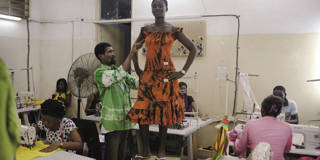Even though African governments were put on notice by the not-so-distant outbreaks of Ebola, most still have not made health and other human-capital investments central to their economic strategies. Until this changes, all of the continent's other aspirations will remain out of reach.
LOME – In 2014, the African Union’s “Cost of Hunger” study alerted African ministers of finance and planning to an underappreciated economic headwind that was gaining strength and threatening to stall their development plans. Yet even as the silent hunger pandemic and the current COVID-19 pandemic erode Africa’s human capital, policymakers and political leaders still have not put health at the center of their recovery plans.

LOME – In 2014, the African Union’s “Cost of Hunger” study alerted African ministers of finance and planning to an underappreciated economic headwind that was gaining strength and threatening to stall their development plans. Yet even as the silent hunger pandemic and the current COVID-19 pandemic erode Africa’s human capital, policymakers and political leaders still have not put health at the center of their recovery plans.